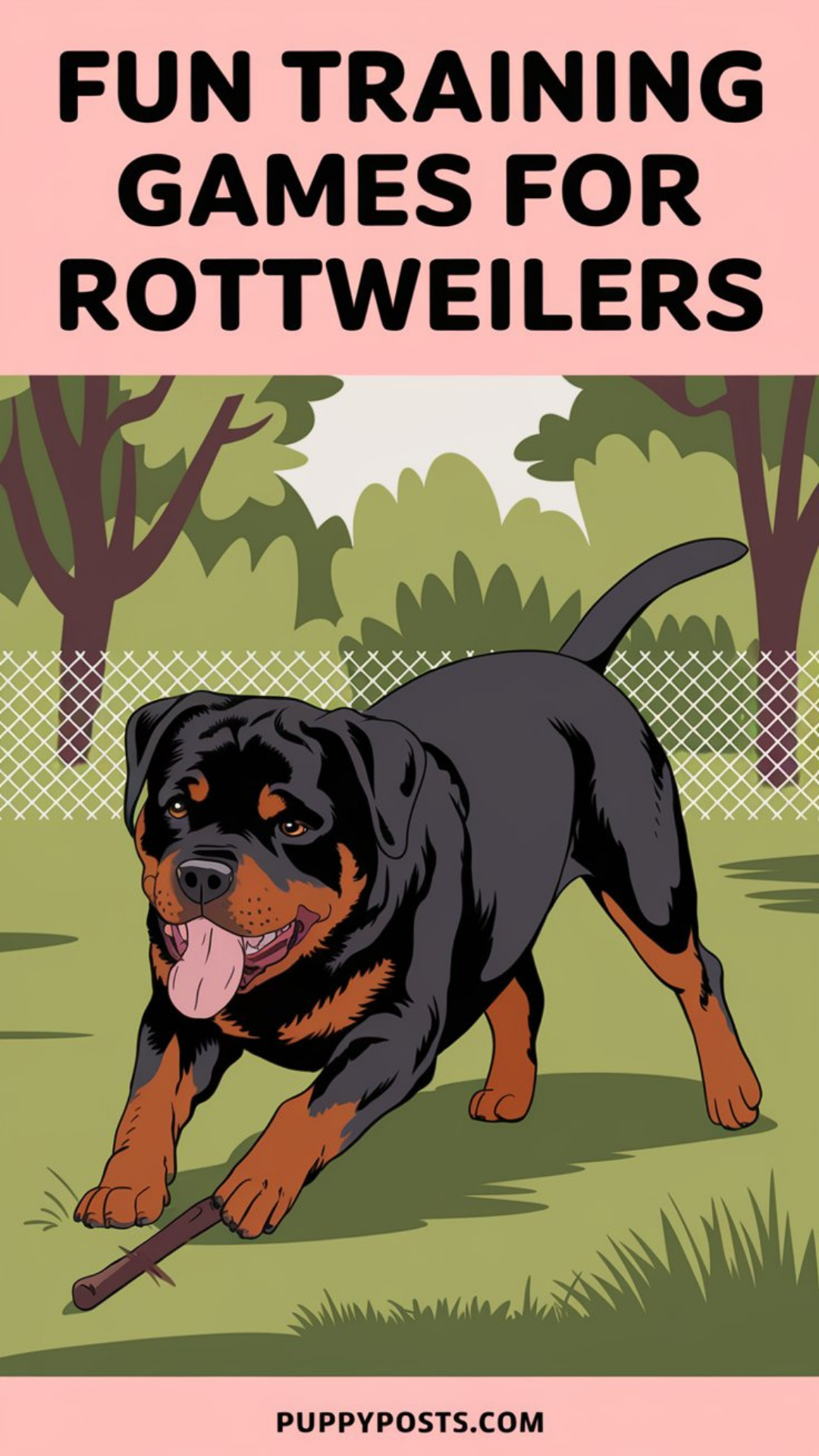Fun training games for Rottweilers
Alright, let’s talk Rottweilers. Big, strong, and sometimes misunderstood. People see the muscle, hear the bark, and jump to conclusions. But me, I’ve been a vet for a decade, running my sanctuary here in Jersey, and I’ve seen enough Rotties to tell you this: they’re smart, loyal, and they crave a job. If you don’t give them one, they’ll find their own work, and you probably won’t like the results. We’re talking digging craters in your yard, rearranging your furniture, or deciding they’re in charge. So, we’re not just playing games here; we’re building a well-behaved, confident companion. This is about channelling that drive, not stifling it.

Put That Brain to Work: Mental Challenges for Your Rottie
Rottweilers aren’t just brawn; they’ve got serious brains. Ignoring that is asking for trouble. You gotta challenge them mentally, or they’ll get bored stiff and look for trouble.
- Scent Work “Find It!”: Your Rottweiler’s nose is a powerhouse. Put it to use. Start by hiding high-value treats in easy-to-find spots around a room while they watch. Give the command “Find it!” and encourage them. As they get the hang of it, make the hiding spots tougher – under blankets, behind furniture, even outside in the yard. This game is fantastic for mental stimulation and helps them focus. A tired nose is a happy Rottie.
- Puzzle Toys and Kongs: Don’t just throw their kibble in a bowl. Make them work for it! Invest in some durable puzzle toys or a classic Kong. Stuff them with peanut butter (xylitol-free, obviously!), yogurt, or even their regular food. Freezing it makes the challenge last longer. This keeps them occupied and thinking, especially when you can’t actively engage with them. It’s not a babysitter, but it’s a good mental workout.
- Name That Toy: Rottweilers can learn an impressive vocabulary. Start with two of their favorite toys. Name each toy clearly as you give it to them. Then, place both toys down and ask them to “Get the [Toy Name].” Reward them heavily when they pick the correct one. Over time, you can expand their “vocabulary” of toys. It’s a great way to reinforce listening and build their cognitive skills.
Build That Body, Build That Bond: Active Play for Your Powerhouse
Rottweilers are strong. They need to move. Letting them sit around all day is a recipe for destructive behavior and health issues. Get them active, but do it smart.
- Controlled Fetch and Retrieve: This isn’t just about throwing a ball. It’s about impulse control. Have your Rottweiler sit and “Stay” while you throw the toy. Only release them with a clear “Fetch!” or “Go get it!” when you give the command. When they bring it back, practice a solid “Drop it” or “Give.” This reinforces obedience during high-energy play, which is crucial for a powerful dog like a Rottie.
- Tug-of-War with Rules: Tug can be a fantastic game for Rottweilers, tapping into their natural drive. However, you set the rules. You initiate the game, and you end it. Use a sturdy, dedicated tug toy. Teach a clear “Drop it” command – when you say it, they release immediately. If they don’t, the game stops. This teaches them impulse control and that you control the resource. It’s a great energy burner and builds muscle, but it must be structured.
- “Obstacle Course” Fun: You don’t need a fancy agility course. Use what you’ve got. Have them jump over a broomstick, weave around some cones (or even just milk jugs), or crawl under a low table. Lead them through with treats and praise. It’s not about speed or perfection; it’s about engagement, building confidence, and using their strong bodies in a structured way.
My Jersey Straight Talk: The Real Deal About Training
Listen, with a Rottweiler, consistency is key. You can’t be wishy-washy. They thrive on clear rules and firm but fair leadership. These games aren’t just for fun; they’re vital tools for shaping a well-adjusted dog. Always keep training sessions short, positive, and end on a high note. Never use punishment; it breaks trust and can lead to aggression. Use positive reinforcement – treats, praise, and enthusiastic play.
A well-trained Rottweiler is a magnificent dog, a true companion. An untrained one? That’s a headache waiting to happen, and it’s not fair to the dog or anyone else. So, get out there, engage that powerful mind and body, and build that bond. You put the work in with these dogs, and they’ll give you back loyalty you wouldn’t believe. Trust me on this one.






